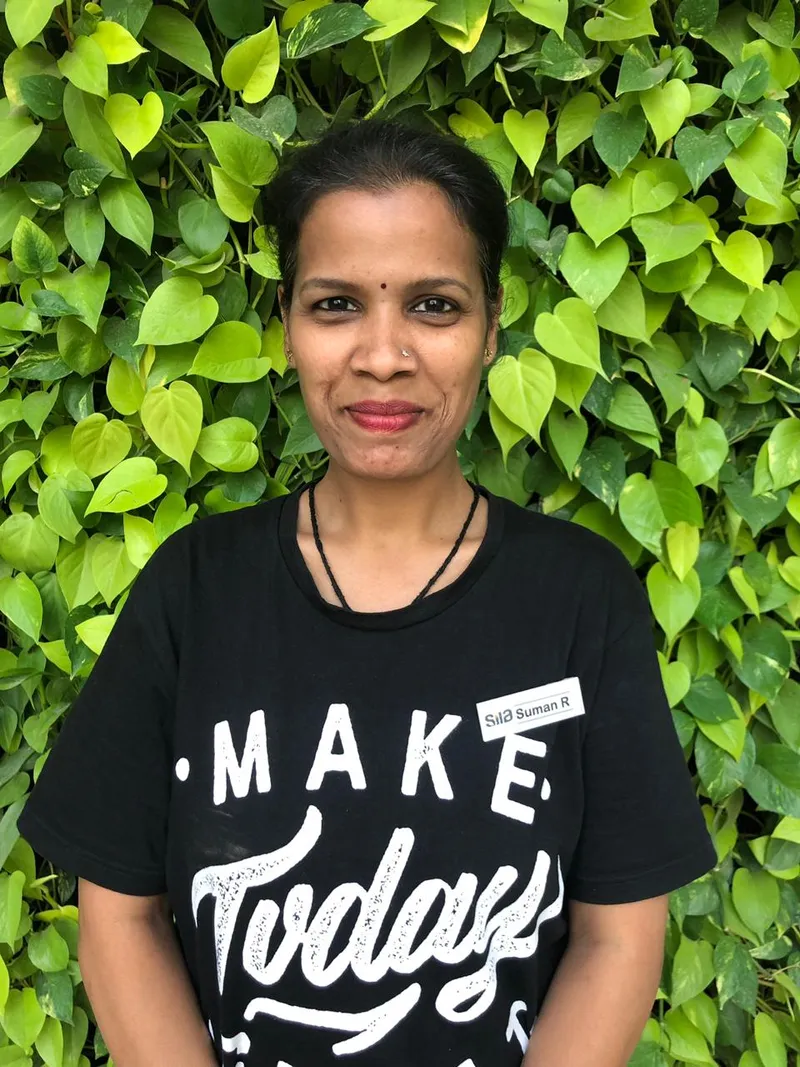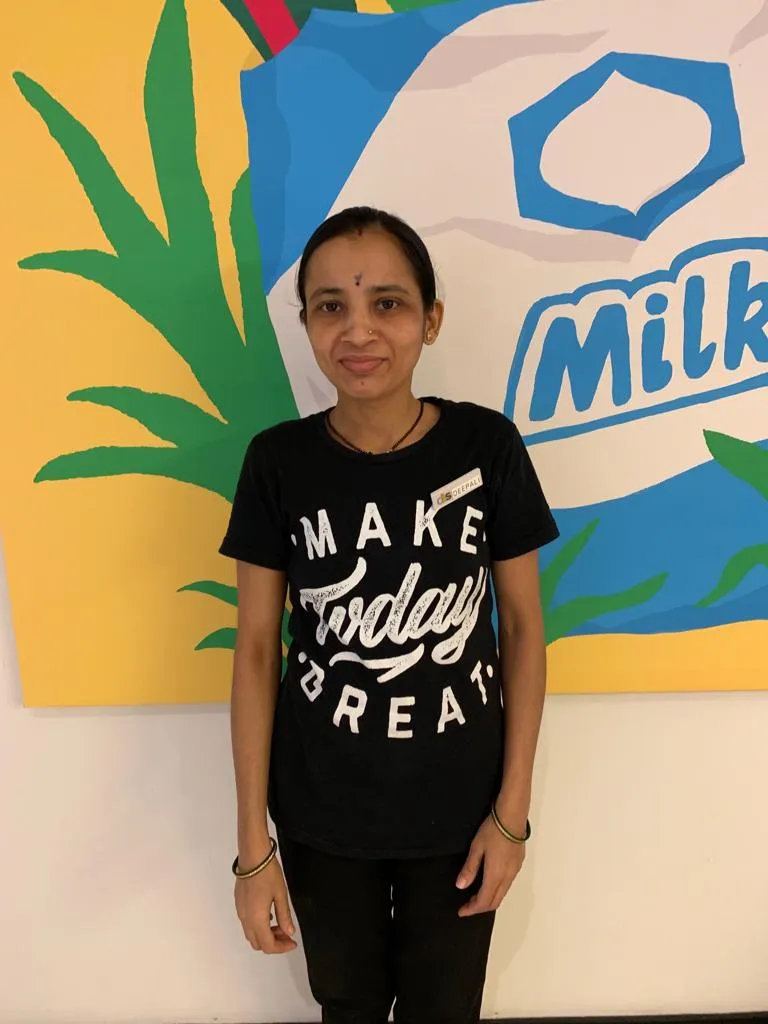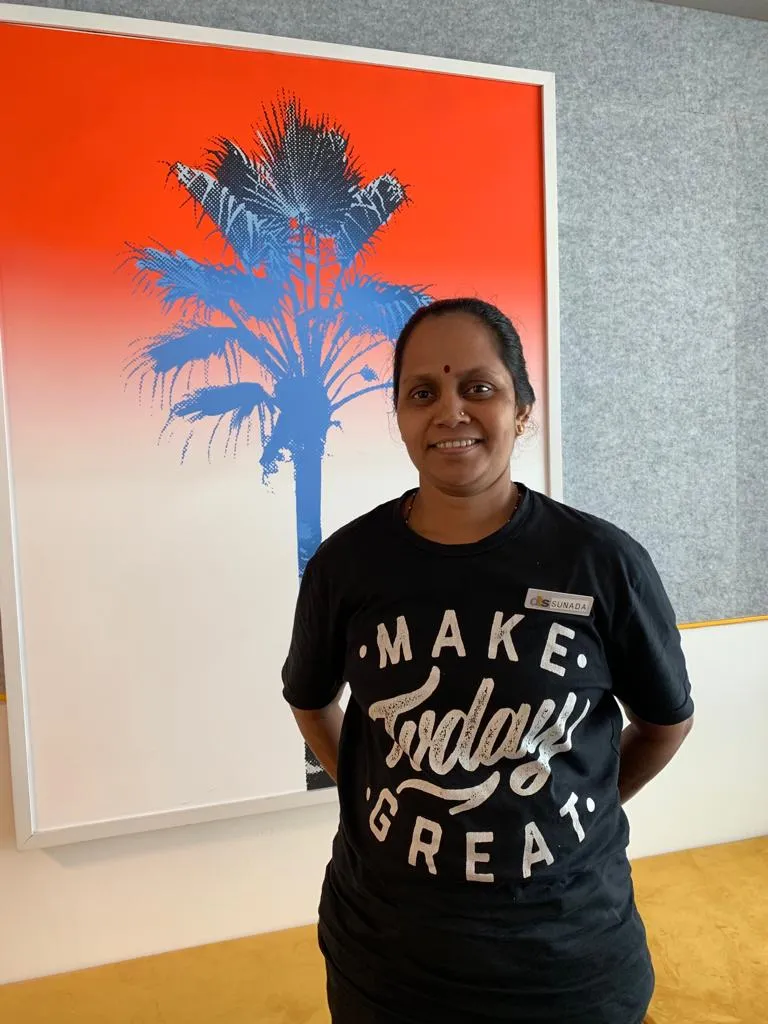
WeWork
View Brand PublisherWeWork salutes the women who overcome adversity to better their lives
Let’s play a game. When I say the words ‘empowered woman’, what image comes to mind? Popular media and contemporary culture have led us to associate them with the young, upwardly mobile millennial, who is not afraid to speak her mind, is unapologetically self-indulgent, self-sufficient, and is quite content to bake her own cake and eat it all, without fear of being judged.
But scratch beneath the surface and you will find that in a country like India, a million stories are being written every day, of women who are breaking the regressive restraints that society and circumstance have placed on them, and are choosing to be financially independent, while continuing in their traditional roles as primary caregivers.
Among these are the women who come into our homes and offices every day to ensure that our lives run seamlessly. In fact, they are so ubiquitous that we take them for granted without acknowledging the giant strides they have made in just stepping out of their homes. This Women’s Day, while we celebrate with discounts on diamonds and specially curated brunches, it’s important to remember empowerment where it’s most needed and to tell the stories that need to be told. YourStory had the opportunity to speak with four remarkable women, who work as Community Service Associates (CSA) at WeWork India. These are their stories:

Suman Ray
Suman Ray, WeWork, Mumbai
Suman Ray, who works as a CSA at WeWork’s Bandra Kurla Complex space in Mumbai, has had to contend with one adversity after another. Her parents didn’t want to educate her and got her married while she was very young. Her husband, who she says ‘was very nice initially’, turned to drink after their first child was born. By the time her second son was born two years later, he was an abusive alcoholic, who refused to work and would go missing from the house for days. She says she was almost driven to the point of suicide, but the thought of abandoning her children in such dire circumstances held her back. Instead, she threw out her husband one night and says she has not seen him since.
Raising two sons as a single mother in Mumbai is no easy task, and there were bills to pay.
“I started working as a cleaning lady at an office in BKC. My day would start at 6 am when my older son would go to school. I would drop my younger son at my mother’s house before going to work.”
She gets emotional when she talks about a time when she was being underpaid despite putting in long hours of work. “My children would ask if they could drink milk, and I could only afford to give them biscuits dipped in water. No parent should ever have to face such a situation. I was promised a raise so many times, but months later, there was still nothing. That’s when a friend of mine referred me to a job at WeWork. I am getting much more money now and can take better care of my children.”
Suman has never missed a day of work and her smile gives no hint of her struggles. She teaches women the art of applying henna in her free time for extra money. Her older son is now in the 3rd grade and the younger one goes to play school. She is extremely proud of what she is doing and does not have to rely on anyone to feed her kids.
She says that joining WeWork has not only meant being able to provide a better life for her sons but also makes her feel appreciated for the first time. She says, “Education is crucial. I know how much I have had to struggle and I am determined my sons will study and have a better life.”
Her advice to everyone on Women’s Day is to ‘Never give up’.

Deepali Deepak Jangam
Deepali Deepak Jangam, WeWork, Mumbai
Deepali grew up in Kolhapur as one of three siblings. She moved to Mumbai after her marriage and was soon raising a family of her own with two boys and a girl. Her husband, who works for a courier service, is supportive of her decision to get a job and bring in an additional income. He is also ready to help with the chores during the day if she has an early shift, and she takes over after she returns home.
Deepali, who has been working at WeWork Oberoi Commerz II for eight months, was working as a helper in a school looking after small children. Her own children are in school — her sons are in the 4th and 11th grade, while her daughter is appearing for her 10th grade exams.
She believes that in this day and age, it’s very important for women to work.
“My daughter has not decided what she wants to take up as a career, but she is young and has time to decide. But, she knows that she wants to study science next year. It’s very important to have an education and get a good job. I may not be well educated but my daughter will be well educated and have an even better life than me. My husband is even more determined than me that she studies further. In this day and age, women have to get an education and get jobs. Only then can society move forward.”
Speaking about working at WeWork, she says that her favourite task is working in the pantry, where she serves tea and coffee and looks after the cleaning.
“I like WeWork, because everyone is so friendly and treats me with respect and dignity. I get the feeling that we are all one family.”

Sunanda Gajnan Pilke
Sunanda Gajnan Pilke, WeWork, Mumbai
Sunanda moved to the city 10 years ago with her husband. She grew up in a small village near Mumbai where her family were paddy farmers. Today, only her father remains in the village and her siblings have all moved to Mumbai.
Sunanda’s husband also works for a courier service and her son is in the 4th grade and her daughter in the 6th. She proudly says that her daughter is a brilliant student and has consistently been getting the top rank in the annual Homi Bhabha computer exams. “My husband is always says yes to anything related to further education, and is also very supportive of my working.”
Sunanda has also been working with WeWork Oberoi Commerz II for eight months now. She worked at Oberoi International School before joining WeWork, where she works in housekeeping. “Everyone at WeWork treats me well and with so much kindness. It’s like working with family every day.”
“I had to give up studies at a young age because of poor health. But, I think it’s very important that women get an education and work and improve their lives and that of those around them.”
Even today, she walks to her home in Malad from Goregaon East to save money. “There are small struggles in life, but I am content with what I have, and my family keeps me going.”
1551971996014.jpg?fm=png&auto=format)
Shilpa G Ragikoopada
Shilpa G Ragikoopada, WeWork, Bengaluru
Shilpa grew up in a typical rural Indian home as one of seven sisters. Her father is a farmer and her mother a homemaker. Wanting a better life for their children, her parents encouraged all the girls to study. Shilpa holds a Bachelor of Science, while her sisters are all double graduates.
Shilpa manages her team of housekeepers at the WeWork space at Salarpuria Symbiosis and sees that everything runs like clockwork. “I try and come in a little before my shift starts and check on who is working and who is absent that day. I allocate tasks for the day and see if there is anything pending or urgent that needs to be attended to. After I finish the allocation for the day, I continue to monitor things to see if anything goes wrong or if anything needs my attention.” But responsibilities have increased at home as well.
“My father has been having a lot of health issues and is in the hospital. The doctor has said that he should eat only home-cooked food, so I cook every day, take the food to the hospital and then come into work for the second shift.”
Shilpa herself had met with an accident few years ago and had to quit her previous job before joining WeWork after three months of hospitalisation. Through it all, she says her mother has been a pillar of strength. “She supports me personally and professionally, and is the main reason I’m still working and career oriented.”
Being at WeWork has also been a great source of motivation. “I have learned so much since coming here and I am learning more each day. While I worked at Accenture, I had some knowledge about systems, but forgot most of it by the time I joined WeWork. But I am getting the chance to learn again. I have to increase my knowledge and skills with communication and systems, so that I can improve my life.”
Shilpa says financial independence is very important as she is currently the sole breadwinner at home after her father was hospitalised. She says that this is her opportunity to pay her parents back for all that they have done for her.


1551972516215.jpg?mode=crop&crop=faces&ar=2%3A1&format=auto&w=1920&q=75)




